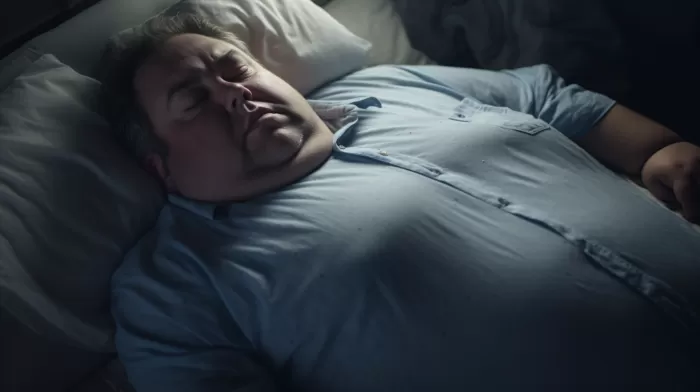Did you know that getting a good night’s sleep is not only crucial for your overall health and well-being but also important for maintaining proper erectile function? Obstructive sleep apnea (OSA), a prevalent sleep disorder that affects around 18 million Americans, has been shown to be linked to erectile dysfunction (ED), particularly in middle-aged, overweight men. In this article, we’ll take a closer look at OSA and explore its connection with ED, as well as some of the factors that may contribute to their coexistence.
What is Obstructive Sleep Apnea?
OSA is the most common form of sleep apnea. During sleep, the airway collapses or becomes blocked, causing pauses in breathing or shallow breaths. These pauses can last several seconds or even longer and may occur 30 times or more per hour. Due to this disrupted sleep pattern, people with OSA often wake up feeling tired and lethargic.
Diagnosing OSA can be challenging, as there is no definitive test to identify the condition during a doctor’s office visit or through a blood test. Most often, a person’s bed partner notices the irregular breathing before a formal diagnosis is made.
OSA and its Connection to Erectile Dysfunction
Researchers at the Mount Sinai Medical Center discovered a correlation between OSA and ED in a study involving 870 middle-aged men enrolled in a cardiac screening program. A total of 63% of participants were found to have OSA, and the chances of experiencing the sleep disorder increased as the severity of ED increased. The study concluded that men with ED should be screened for OSA.
In another study, 62 men who had recently been diagnosed with OSA were surveyed about their erectile function. Results revealed that around 64.4% of the men had ED. The risk factors for ED noted by the researchers included age, diabetes, high blood pressure (and medication to treat it), and smoking.
Factors Influencing the Occurrence of ED in Men with OSA
A Spanish study aimed to identify factors that can influence the occurrence of ED in men with OSA. Researchers found that 69% of the 142 men (with a mean age of 53 years) had ED. Those with more severe OSA were more likely to have erectile dysfunction. After accounting for other factors, the study found that age and high cholesterol were most closely associated with ED in men with OSA.
Effects of OSA on Erectile Function
OSA affects erectile function through several mechanisms. Primarily, it causes an imbalance in the body’s hormonal system, leading to decreased testosterone levels. Testosterone is essential for maintaining a healthy sexual appetite and normal erectile function.
In addition, the irregular breathing patterns and intermittent hypoxia (low oxygen levels in the blood) caused by OSA can lead to oxidative stress and inflammation, which can contribute to ED. Moreover, the sympathetic nervous system overactivity triggered by OSA can impair the blood flow necessary for a firm erection.
Treating OSA to Improve Erectile Function
Men experiencing ED should talk to their healthcare provider to determine if OSA may be contributing to their symptoms. Various treatment options for OSA can help improve sleep quality, overall health, and, as a result, erectile function. Here are some ways to manage OSA and potentially improve ED:
- Lifestyle changes: Maintaining a healthy weight, regular exercise, and a balanced diet can help improve OSA symptoms. Research also shows that quitting smoking and limiting alcohol consumption can significantly reduce the likelihood of developing OSA and ED.
-
Continuous Positive Airway Pressure (CPAP): The most recommended treatment option for OSA, this involves wearing a mask that provides a continuous flow of air to keep the airway open during sleep. Regular use of a CPAP machine can significantly improve erectile function in men with OSA-related ED.
-
Oral appliances: These devices are designed to keep the airway open during sleep by repositioning the lower jaw and tongue. They can provide relief for people with mild to moderate OSA who cannot tolerate CPAP therapy.
-
Surgery: In some cases, surgery may be necessary to treat OSA. Procedures may include removing excess throat tissue or correcting nasal obstructions that contribute to the problem.
In conclusion, it is important for men with erectile dysfunction to consider the possibility of obstructive sleep apnea as a contributing factor. By treating and managing OSA, many men can improve their sleep quality, overall health, and erectile function. Always consult a healthcare professional to determine the best course of action for your specific situation.



![Boost Your Bedroom Game: Eat These Veggies for Better Sexual Health [INFOGRAPHIC]](https://naturalhealthreserve.com/wp-content/uploads/2024/01/best-vegetables-sexual-health-infographic-300x168.webp)